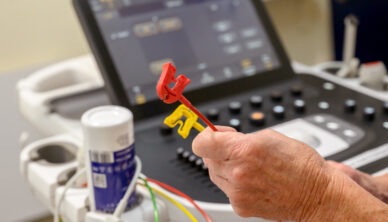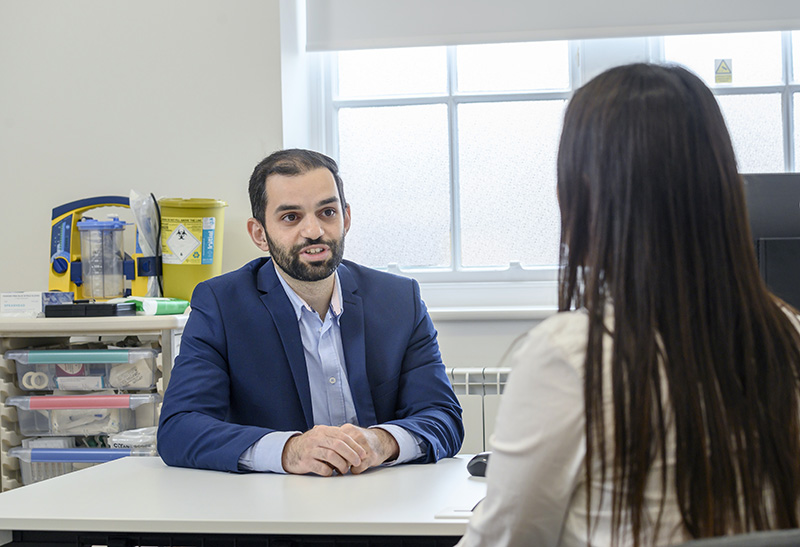Contents
Chest Pains

Chest pain can be a serious warning sign of heart disease or other medical conditions.
What is Chest Pain?
Chest pain refers to any discomfort, tightness, or pressure in the chest area. While some causes are mild, others may indicate a serious heart condition such as a heart attack or angina. If you experience sudden or severe chest pain, seek immediate medical attention.
Common Symptoms Associated with Chest Pain
- Pressure or Tightness – A squeezing sensation in the chest
- Burning or Stabbing Pain – Sharp, localized pain in one area
- Pain Radiating to the Arms, Jaw, or Back – A possible sign of heart disease
- Shortness of Breath – Difficulty breathing or feeling winded
- Dizziness or Lightheadedness – Feeling faint or unsteady
- Sweating & Nausea – Especially with pain in the left side of the chest
If you have chest pain with any of these symptoms, seek emergency care immediately.
Potential Causes
Cardiac Causes (Heart-Related)
- Heart Attack (Myocardial Infarction) – A blocked artery stopping blood flow to the heart
- Angina – Reduced blood flow to the heart causing tightness or discomfort
- Pericarditis – Inflammation of the heart’s outer lining
- Aortic Dissection – A life-threatening tear in the aorta
- Heart Valve Disease – Problems with the heart valves affecting blood circulation
Non-Cardiac Causes
- Gastroesophageal Reflux Disease (GERD) – Acid reflux causing burning chest pain
- Pulmonary Embolism – A blood clot in the lungs causing sharp pain
- Pneumonia or Pleurisy – Infections leading to lung inflammation
- Muscle Strain or Rib Injury – Chest wall pain from physical activity or injury
- Anxiety & Panic Attacks – Stress-related chest pain mimicking heart symptoms
Diagnosis
At The Royal Buckinghamshire Hospital, we use advanced cardiac and diagnostic tests to determine the cause of chest pain:
- Electrocardiogram (ECG/EKG) – Measures heart rhythm to detect abnormalities
- Blood Tests (Troponin Levels) – Checks for markers of a heart attack
- Chest X-Ray – Identifies lung conditions or rib injuries
- Echocardiogram (Heart Ultrasound) – Examines heart function
- CT Scan or MRI – Provides detailed images of the heart and arteries
- Coronary Angiography – Detects blocked arteries causing chest pain
- Stress Testing – Evaluates heart performance under exertion
Early diagnosis is crucial for preventing serious complications.
Treatment Options
Emergency Treatment (Heart Attack or Severe Cases)
- Oxygen Therapy & Medications – To stabilize the heart
- Angioplasty & Stenting – To open blocked arteries
- Coronary Artery Bypass Surgery (CABG) – For severe artery blockages
Medications for Chest Pain Management
- Aspirin & Blood Thinners – Prevent blood clot formation
- Beta-Blockers & ACE Inhibitors – Lower blood pressure & reduce heart strain
- Nitroglycerin – Relieves angina symptoms
- Cholesterol-Lowering Drugs (Statins) – Reduces risk of heart disease
Lifestyle Changes & Preventative Care
- Heart-Healthy Diet – Low cholesterol, balanced nutrition
- Regular Exercise – Helps improve cardiovascular health
- Stress Management – Reducing anxiety-related chest pain
- Smoking & Alcohol Reduction – Lowers heart disease risk
When to Seek Medical Help for Chest Pain
You should seek urgent medical care if your chest pain:
- Is sudden and severe – Could indicate a heart attack
- Lasts more than a few minutes – Requires immediate evaluation
- Spreads to the arms, jaw, or back – A potential heart condition
- Occurs with dizziness, nausea, or sweating – Signs of a cardiac event
- Worsens with activity – Could suggest angina or blocked arteries
Arranging To Visit A Private GP

At Royal Buckinghamshire Hospital, we provide fast diagnosis, expert treatment, and ongoing care to support recovery and reduce future risk. Make an appointment with one of our private GPs who can refer you to our specialist cardiologist. Appointments are available to everyone and can often be booked for the same day. There is no need to be registered with our The Royal Buckinghamshire Hospital, or live locally.
If you have insurance which covers a GP visit, we can in most cases invoice the insurer directly. Where you are paying directly, the cost for a 30 minute consultation is £100.
Any additional costs will always be discussed. They could apply if you are referred for an MRI scan, or to a consultant, or for other agreed decisions to support your health.
Our Resident Private GP
Dr Chamali is welcoming and highly experienced. He offers his patients sound diagnosis and treatment, along with individual care focused on their future health.
31 March 2025




